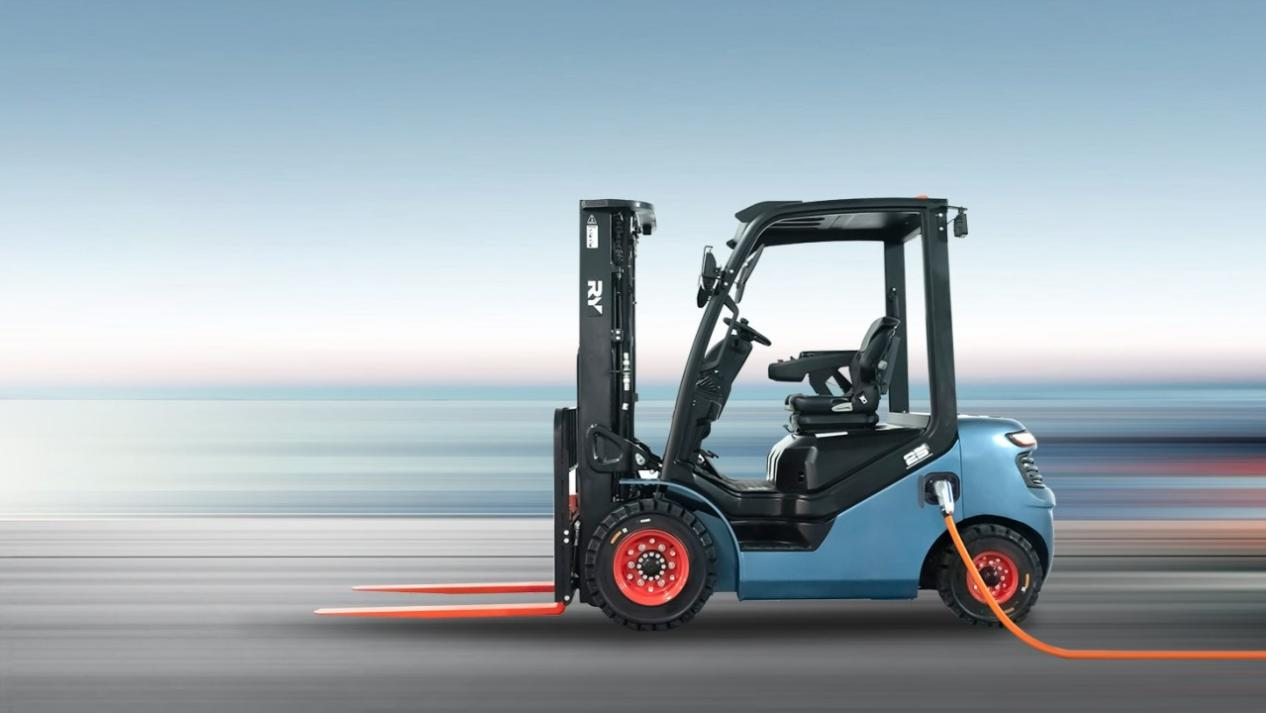JULY 30, 2025
LFP Battery Technology in Material Handling Industry


As the global logistics industry moves toward efficiency and sustainability, electric forklifts are rapidly replacing traditional internal combustion models. Among various battery technologies, LFP (Lithium Iron Phosphate) has emerged as the optimal choice for industrial applications due to its safety, durability, and performance.
Royal Forklift leverages LFP battery technology across its lithium-powered product series, offering customers a cleaner, smarter, and more cost-effective solution for material handling.
The Evolution of Forklift Battery Technology
Until the early 2010s, most electric forklifts relied on lead-acid batteries, a technology with known limitations—slow charging, short lifespans, and constant maintenance.
That began to change when lithium-ion batteries entered the forklift industry around 2013. Initially seen in premium electric models, lithium batteries quickly demonstrated:
Faster charging
Maintenance-free operation
Longer cycle life
Among lithium chemistries, LFP stood out. Originally developed for EVs and stationary energy systems, LFP offered a safer, more stable alternative to NMC and LCO batteries. By 2015, manufacturers started scaling LFP-powered forklifts for mainstream use.

(Forklift Battery Market Size)
Why LFP is Ideal for Forklifts
Safety First
Forklifts operate in tight spaces like warehouses, where safety is non-negotiable. LFP (Lithium Iron Phosphate) batteries are inherently safer due to their superior thermal stability and high energy density, with minimal risk, drastically reducing fire or explosion hazards compared to other lithium-ion chemistries.
Cost-Effectiveness
Unlike EVs, forklifts don’t need extreme energy density for long-range use. LFP batteries strike the perfect balance of high energy efficiency and affordability, offering lower upfront costs and better ROI for fleet operators. Their stable energy output ensures consistent performance without frequent replacements.
Longevity & Durability
Built for high-intensity cycles, LFP batteries leverage their high energy retention capability to last 3,000+ charges—ideal for round-the-clock forklift operations. This extends battery life and slashes total cost of ownership (TCO) over time, thanks to their slow degradation rate.
Industry-Proven Reliability
LFP technology is already the go-to choice for top forklift brands due to its high energy density and reliability under heavy use. At Royal Forklift, our LFP-powered electric trucks deliver real-world performance, backed by years of seamless operation in demanding environments.
Below is a chart demonstrating how LFP improves long-term operational ROI.

(LFP, Lead Acid, IC Forklift in Comparison)
Royal Forklift’s LFP Solutions
Royal Forklift offers a complete range of lithium-powered products, engineered with LFP battery systems for maximum efficiency:
Electric Counterbalance Forklifts (153.6V/ 80V High Voltage Battery Systems)

(Side-opening battery compartments)
Electric Pallet Trucks, Stackers, and Scissor Lifts.
All models come with:
Integrated Battery Management System (BMS)
Fast charging compatibility (100% in 1.5 hours)
Global Quality Certifications (ISO, CE, EAC, etc)
Conclusion
LFP battery technology is redefining what’s possible in material handling. With Royal Forklift’s lithium solutions, businesses can unlock:
✅ Lower operational costs
✅ Higher productivity
✅ Environmental compliance
✅ Reliable performance in all conditions













 English
English 


